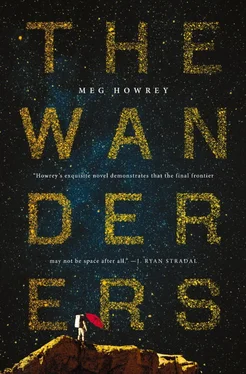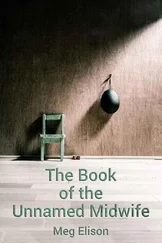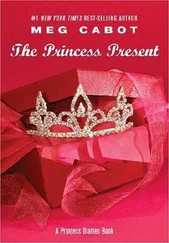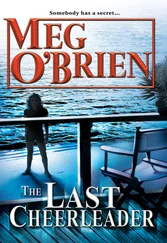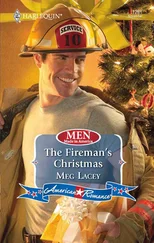Helen, despite her distraction, or dehydration, or sadness, feels a rush of genuine liking for this man, this respecter of calluses.
In the third month of her longest mission aboard the International Space Station, Helen had removed her socks and seen the calluses from the soles of her feet come completely off with them and float up in front of her face. She then had to chase them down—flying, since she could not chase her feet on foot—and secure them in a trash bag because otherwise someone else might have had to vacuum her calluses out of a vent and that wasn’t fair. Boone would probably enjoy this anecdote. When Helen had told it to her daughter, Meeps had laughed, but also said, in one of her funny-angry voices, “Okay, I won’t ever have a story as cool as that in my entire life.”
“Incredible,” says Helen. “My daughter studied acting and I remember her telling me that there are no small roles. That’s absolutely true, I think. Your grandmother’s contribution could not have been more vital.”
Boone executes a double thumbs-up in agreement, or perhaps that’s what he always does when he reaches this point in the story. “She and her coworkers took their jobs very seriously. They knew what was at risk. Later, my grandmother watched the Apollo 14 crew bouncing around on the moon, being silly, having the time of their lives, and her heart was in her throat. She said she kept whispering, ‘Get back inside, get back inside, stop horsing around.’ Because of course the astronauts were enjoying themselves. But people like my grandmother knew the truth. They knew the truth about how fragile everything is, because they had stitched every stitch of that fragile truth.”
“Indeed,” agrees Helen, but in the gently repressive tone of someone who would like to dial down the emotional level of the conversation a notch or two. Possible imminent death was her business, and not a subject for poetry, even if it’s only the whimsy of Boone’s speechwriter. “What a lovely tribute to your grandmother.” Helen takes a few steps back and makes a show of surveying some of the other artwork. “This is all just great.”
They begin touring the lobby. The white and gray paint scheme, the sprung floor that swallows the sound of their feet, the curved lines, all contribute to a sense of the space as a kind of airlock: a place to transition from one world to the next. Boone points out that one of the other tributes is a small screen running video loop of Helen herself, giving a demonstration meant for schoolchildren of brushing her teeth in microgravity.
Her first trip to space, the hair floating around her face not yet gray. Helen’s daughter had been six at the time, Helen’s husband still alive.
She’d worn an ILC-designed suit on that mission. And fourteen years later, Helen had been giving a commendatory address at ILC headquarters in Delaware on the day her husband died. NASA had sent her: it was important for the makers of spacesuits to connect their work to an actual human who was capable through human error—possibly theirs—of dying. So at the moment when she had been thanking men and women for their heroic efforts to keep her, a hero, alive, her husband had expired in the parking lot of a Houston hospital for want of an aspirin. Helen’s best guess was that Eric had felt some sort of chest pain, but had not wanted to call an ambulance for some reason, and had driven himself. No one knew for sure. Five years ago, now.
Helen’s daughter believes that her mother has not adequately dealt with the death of her husband, and further believes that the reason for this has to do with Helen’s unresolved feelings about the death of Helen’s father. Helen does not know exactly what Meeps means when she says this, does not know exactly what sort of statement or act on her part would indicate resolution, and suspects that what her daughter wants is to manifest in Helen an emotional life closer to her daughter’s own dizzyingly intense ability to feel many things at once.
Boone continues the tour. More than a few of the images in Prime Space’s lobby of dreams seemed to be drawn from science fiction rather than actual space exploration milestones. For Helen, the initial flame had been a book. Men on the Moon. But it wasn’t Neil or Buzz that had interested her, or even the moon itself. She had been attracted to the mission’s most unsung hero: Michael Collins, alone in Columbia, drifting around the moon in exquisite solitary splendor while Buzz and Neil had gone about the terrestrial work of putting down a plaque, erecting a flag, and gathering rocks. Every two hours Michael Collins had gone out of radio contact for forty-eight minutes when the moon stood between himself and Earth, and during those minutes he was the most alone person in the history of people. Helen still liked to think about that. That had always been her dream: space, not a location within it, just space.
But she had made, as they all had, public statements of support for every Prime Space success in the MarsNOW timeline announced fifteen years ago. As one of Helen’s astronaut colleagues had put it, “You never know. At least it’s not another fucking rover.” One by one, Prime had been knocking down every serious obstacle, eliminating every “show-stopper.” Even the notoriously cautious Office of Planetary Protection had cleared Prime’s proposed landing site as being acceptable for human presence. And the last achievement— Red Dawn , Prime Space’s Earth Return Vehicle—was currently on Mars making its own propellant from Martian resources, a ride back to Earth for the first humans who could make it there.
Prime Space had been good for all of them, keeping the dream of human space exploration alive during NASA’s Congressional de-pantsing and subsequent morale depletion. Everyone assumed that Prime was working toward developing an independent astronaut corps.
Helen told herself that she would consider any offer carefully. This conversation might have nothing to do with MarsNOW. Prime might want her to advise on its astronaut program. They might want her expertise on inflatable graphene habitats. They might want her as a figurehead, a photograph, a status symbol. It is these scenarios Helen thinks of, because she needs to avoid any awareness of hoping to be rescued.
Rescued! It is an embarrassing word for Helen, and nearly as foreign to her as irrelevant . As a child she had imagined workarounds for stories where maidens needed rescue, had never understood why Rapunzel, for instance, didn’t engineer her own escape. If Rapunzel’s hair was capable of sustaining a man on the ascent, then surely she could have cut herself free from her hair with utensils or sewing implements or broken-off bedroom furniture and then used it to rappel herself down from the tower. Helen had even drawn up several viable contingency options for Rapunzel, should things not go as planned.
Rescued was the wrong word, surely.
Except she cannot escape this feeling of containment, of hindrance, and this is not a rational feeling, since the tower she has been shut in is only all of Earth. It is not anyone’s fault, or responsibility, that the best of her exists in space, that she knows she’s at the height of her powers, that if she doesn’t go back up, then she has run out of road before she has run out of breath.
And how many years left on Earth for her? Consigned to a lesser version of herself on a planet that had also seen better days. Cast out from heaven into a melting Eden.
This is an inappropriate moment to have this realization, and so Helen tries to stave it off by doubling down on PIG.
They’ve now made a circuit of the lobby. Helen has a dim sense of people waiting outside the curved walls, people waiting to come in, or get out. For the thing—something—to happen.
Читать дальше
